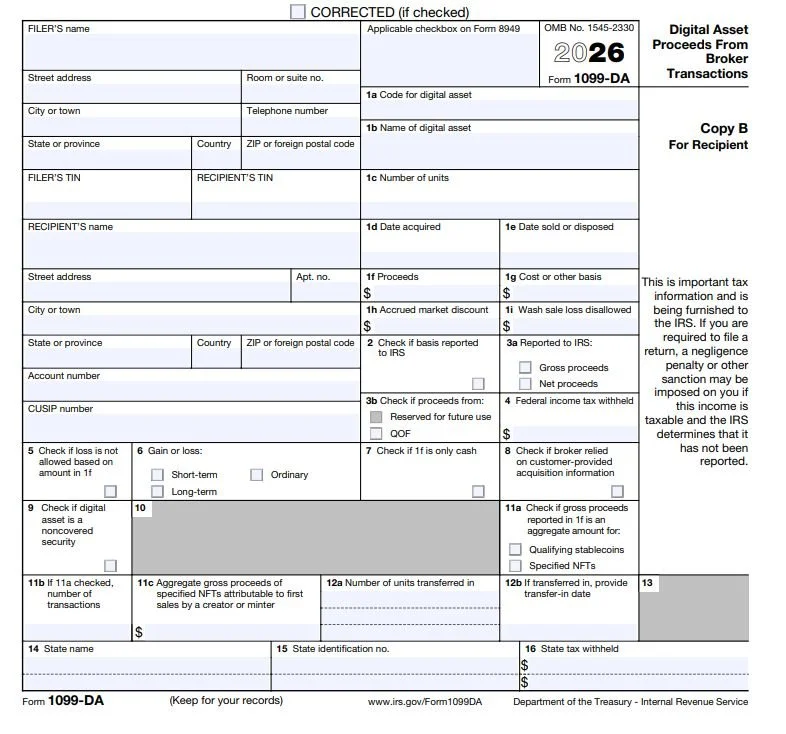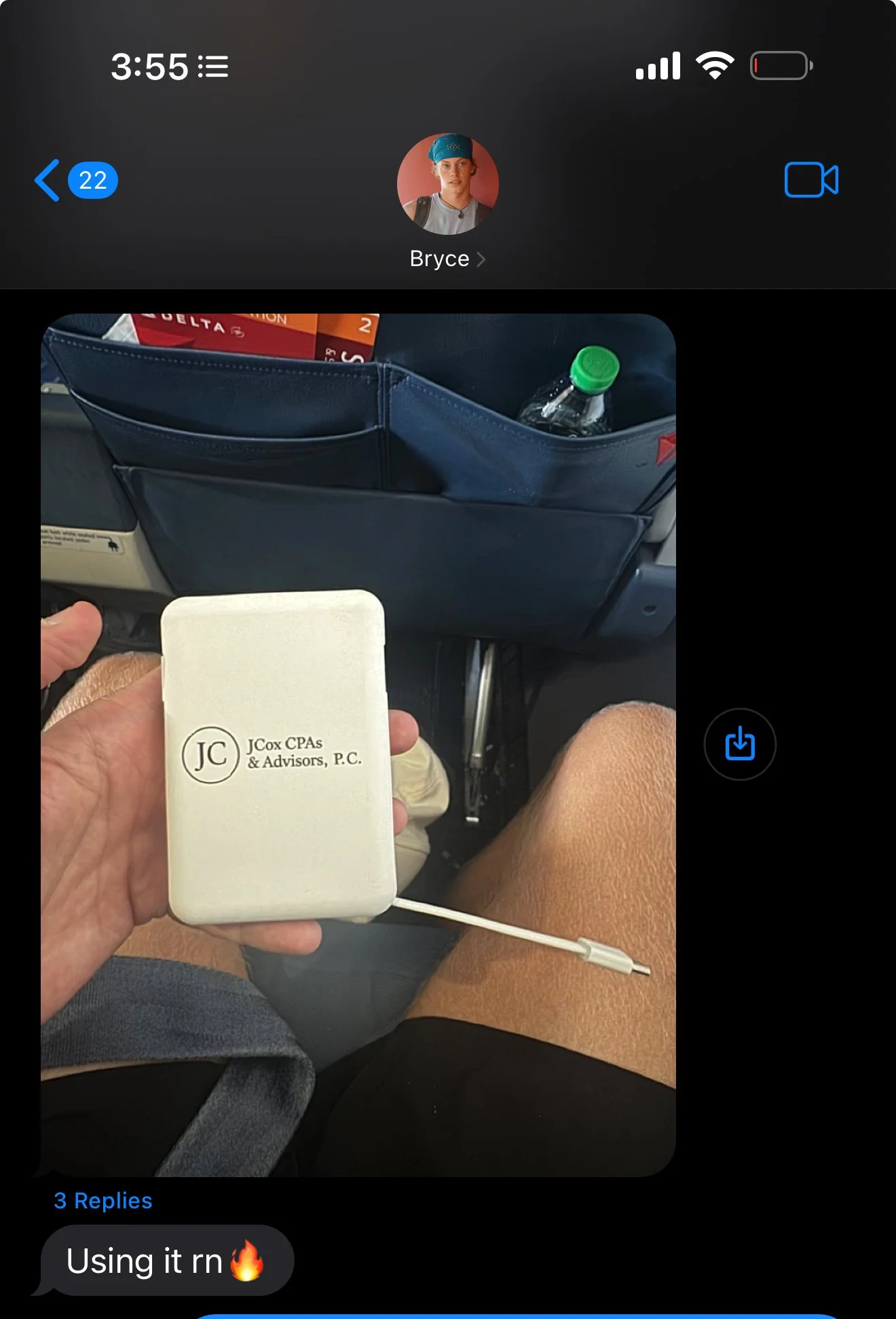When we designed our client gift box, we wanted it to be more than a thoughtful gesture; we wanted it to embody the same intentionality that drives our work at JCox CPAs & Advisors, P.C. Every detail, down to the box itself, was chosen with care. The box doubles as a practical storage solution, giving clients a dedicated place to collect receipts, invoices, and important documents as they go about their busy lives.
Our goal was simple: to help clients stay organized and focused on running their businesses, without the added stress of clutter or misplaced paperwork. Too often, valuable time and energy are lost in the search for missing documents when it matters most. By offering a tool as simple as this box, we provide clients with peace of mind, knowing everything they need is in one place. And when tax season or financial planning comes around, this intentional design pays off even more. Clients can simply request a pickup of their documents, confident that their records are already gathered, secure, and ready for review.
The Meaning Behind Each Client Gift
Each item inside the gift box was selected with the purpose of reflecting not only practicality but also the values of our firm:
JCox Notebook – A place for clients to jot down thoughts, goals, or meeting notes, serving as a reminder that clear planning leads to clear results.
JCox Dual USB/USB-C Flash Drive – A modern tool that makes it easy to back up and share files, symbolizing how we bridge traditional accounting with today’s digital demands.
JCox Flask Bottle – A reminder to stay refreshed and take care of one’s health, because running a business requires balance as much as it requires effort.
JCox Pen & Sticky Notes – Simple, everyday tools to capture ideas and track reminders, reinforcing our belief that no detail is too small when it comes to success.
JCox Tote Bag – A practical, reusable way to carry materials, representing our commitment to sustainability and providing clients with resources they can use beyond the office.
Together, these items serve as a toolkit for staying organized, connected, and prepared. They are not just branded tokens; they are a reflection of our values: commitment, engagement, and responsiveness. From keeping receipts in the gift box to saving files on the flash drive or carrying essentials in the tote, each piece was chosen to support our clients in meaningful, practical ways.
One of our clients, Bryce Crawford [1], has found the JCox power bank to be an essential tool. As he travels across states sharing the gospel through street evangelism and social media, Bryce uses the power bank to keep his devices charged and his ministry connected. What may seem like a simple gift serves a greater purpose, supporting his mission to bring the hope and love of Jesus to communities everywhere.
At JCox CPAs & Advisors, P.C., even the smallest details are designed with purpose. Just as our professional services are tailored to help clients succeed, our client gift box is a tangible reminder that we are here to walk alongside them every step of the way.
JCox Partnership Alliance: Gifts as a Reflection of Our Commitment
When we designed our client gift box, we wanted it to represent more than appreciation. It was created with purpose, giving clients practical tools to stay organized, connected, and prepared. In the same way, our broader mission at JCox CPAs & Advisors, P.C. is to design solutions, not just for individuals, but also through the partnerships we build.
Just as we are intentional in financial reporting, tax strategy, and advisory, we are intentional in how we honor and strengthen our partnership alliance. Our gifts represent a small but meaningful way of saying that at JCox, we view every partnership as a true alliance, one designed to create lasting impact for both our collaborators and the clients we serve together.
Over the past two years, we have taken intentional steps to form partnerships that create greater value and peace of mind for our clients. These partnerships extend the same thoughtfulness we put into our gifts into the way we serve on a larger scale.
Here are some of the key initiatives we’ve developed:
Partnering with local CPA firms to provide specialized expertise for complex client engagements. This allows us to collaborate and ensure that no challenge is too large for our clients to navigate.
Partnering with law firms through our JCox Legal Concierge [2] initiative, offering clients access to attorneys in areas such as business litigation, business transactions, and family matters.
Partnering with wealth management firms to help clients plan for the future with confidence, providing holistic guidance on everything from retirement planning to asset protection.
Partnering with technology leaders to enhance accounting processes, streamline payroll, and strengthen financial reporting. These collaborations allow us to integrate advanced tools directly into our clients’ businesses, improving accuracy, efficiency, and real-time insights.
Together, these partnerships create a one-stop platform for our clients, a place where accounting, advisory, tax, legal, and wealth management needs are not separate hurdles but part of one seamless experience.
At the heart of everything we do is a commitment to serve clients not just with financial expertise, but with tools, partnerships, and experiences that create clarity and peace of mind. From the smallest details to the largest collaborations, we strive to ensure that our work is purposeful, practical, and deeply rooted in values that stand the test of time.
We are grateful for the trust our clients place in us and for the partnerships that make our work possible. At JCox CPAs & Advisors, P.C., every relationship matters. Whether you are a client, a partner, or a future collaborator, we thank you for walking with us as we continue building purposeful solutions, grounded in values that last.
[1] Bryce Crawford is the Founder and CEO of Jesus in the Street, Inc., a 501(c)(3) Christian nonprofit dedicated to sharing the gospel through social media and street evangelism. After a transformative personal experience, Bryce committed his life to bringing the hope, light, and love of Jesus to urban communities and marginalized individuals. As a Gen Z influencer, he leverages digital platforms alongside in-person ministry to connect with diverse audiences, offering encouragement, biblical truth, and practical hope. His unique approach allows him to bridge generational gaps, using both technology and grassroots outreach to advance the mission of Christ. His Instagram @brycecrawford his other social media links: brycecrawfordministries ilovejesus
[2] Details coming soon.











